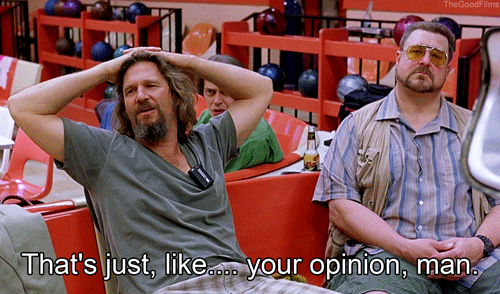Leo Strauss argues in “What is Political Philosophy?” that the most fundamental meta-political good is the ability to distinguish knowledge from opinion:
In short, the epistemologist—the person who knows what knowledge is—should direct everything else.
Postmodernist philosophers reject the possibility of both philosophy and political philosophy, as Strauss defines it, because they reject the distinction between knowledge and opinion. They reject the possibility that we could ever know what knowledge is as distinct from, say, ideology or prejudice.
Whereas Socrates showed his interlocutors that what they thought was knowledge was not, postmodernists apply the Socratic method to Socrates himself. The result is a general sense of cynicism:
In taking aim at epistemology, postmodernism destroys the ability to do classical political philosophy. Yet in replacing the knowledge/opinion binary with interpretation it makes room for something else.
The critique of postmodernism, advanced by some of Strauss’s students (e.g., Allan Bloom in The Closing of the American Mind)—and embedded in Strauss’s critique of historicism in Natural Right and History—is that if you can’t uphold a distinction between knowledge and opinion, you’re a nihilist or a relativist.
But the contribution of hermeneutics, which we get from Heidegger and Gadamer, is that while philosophy can no longer produce knowledge, it can have better and worse opinions. The good remains a regulative ideal, even if it’s a mirage, a shifting goal-post.
The standards by which we judge goodness and the standards by which we judge our standards of judgment are interlinked and dynamic. While we don't know what good is, we know that it’s bad to make our judgments in a static condition.
Philosophy emerges as the negative knowledge—the photographic negative—of what we know to be false.
This is the conclusion of Enlightenment critics, Adorno and Horkheimer: "Philosophy exists because the chance to realize it has been missed." The dream of philosophy is kept alive by the nightmare of a society that we know to be wrong even if we can't say why.
But if we can’t say why society is wrong other than on the basis of presumption or sentiment or opinion, then aren’t we just making another faith claim? Isn’t negative dialectic just another creed, another “superstition”?
Perhaps. But, in the same way that Descartes found a foundation in his doubt, Adorno finds a foundation in his. My ability to challenge my own philosophy, my skepticism that goes all the way down, itself proves the durability of philosophy.
The search for knowledge, like Quixote’s quest, is kept alive by signs, signs which will only be vindicated as reasonable if we find what we are looking for. And if it turns out that we are mad, so be it. For we would be mad no matter what.
Keep reading with a 7-day free trial
Subscribe to What Is Called Thinking? to keep reading this post and get 7 days of free access to the full post archives.





